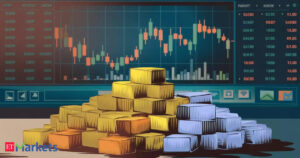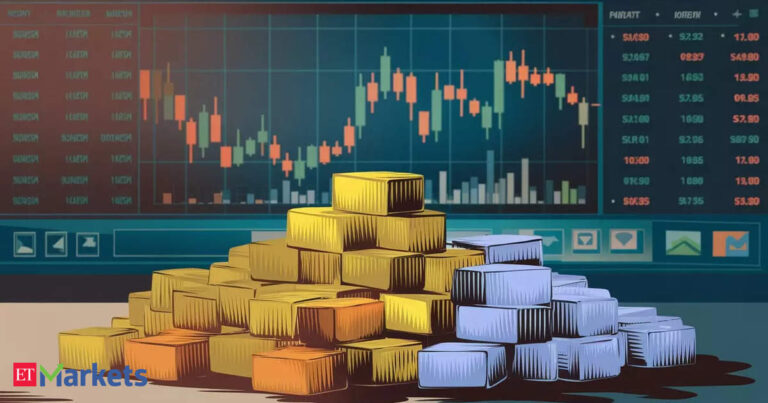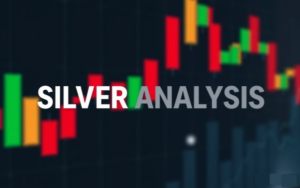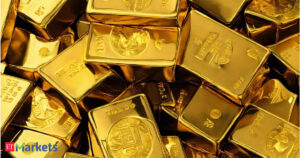Gold prices are expected to remain elevated in 2025 supported by central bank buying and safe-haven demand amid geopolitical tensions, while silver prices have the potential to outperform yellow metal led by robust industrial demand, said Jigar Trivedi, Senior Research Analyst – Currencies & Commodities, Reliance Securities. In an interview with Livemint, Trivedi shared his outlook for commodity markets and currencies in 2025. Here are edited excerpts.
1. How would you assess the overall performance of the commodity markets in 2024, particularly in light of geopolitical developments, central bank monetary policies, inflationary pressures, and dollar fluctuations?
A. The commodity markets in 2024 were marked by significant volatility driven by the multiple factors you mentioned. The elections in major economies like the US, India and the European Union and escalated geopolitical tensions impacted market sentiment. While central banks’ rate cuts supported specific commodities like bullion, the appreciation of the US dollar on possibilities of pro-America policies under Donald Trump’s administration pressured industrial metals.
Gold and silver stood out as key performers, achieving record highs on MCX, while crude oil stabilized within a range as OPEC and non-OPEC tussles continued.
2. What are your key projections for the commodity markets in 2025, with a specific focus on gold and silver? To what extent do you expect the US dollar and Donald Trump’s administration to influence commodity price trends in the coming year?
A. 2025 will likely be volatile, shaped by geopolitical risks and Trump 2.0 policies. I believe that central bank buying will keep gold prices elevated, and any corrections should be viewed as buying opportunities. Silver will continue to witness investment demand along with strong industrial demand, which will likely result in silver outperforming gold.
However, pro-America policies may strengthen the dollar, capping short-term commodity gains. But I expect that trade tensions could increase demand for safe-haven assets like gold.
3. How do you interpret the Fed’s recent post-policy statement, and how will it shape the commodity markets in 2025? With central banks maintaining strong gold-buying momentum, do you expect this trend to persist, and what implications could it have?
A. The US Federal Reserve’s recent statement signals caution amid potential inflationary pressures under Trump’s administration. While two rate cuts are expected in 2025, the stance remains hawkish.
As mentioned earlier, central banks are expected to continue buying gold, supporting bullish trends in gold prices, while rising dollar strength may cap gains in other commodities and industrial metals.
4. What is your view on silver’s performance relative to gold in the upcoming year? Could industrial demand for silver provide an edge over gold?
A. Silver is poised to outperform gold in 2025 due to its dual role as a precious and industrial metal. Growing applications in EVs, solar energy, and renewable technologies will boost silver prices. Moreover, the Gold-Silver ratio is likely to tighten as silver benefits from robust industrial usage.
We recommend long positions in silver, especially during market dips, to capitalize on its industrial potential.
5. What are your expectations for the energy sector in 2025, particularly crude oil and natural gas, given ongoing geopolitical tensions and supply-demand dynamics?
A. Crude oil and natural gas are expected to remain volatile in 2025. Oil prices are likely to range between $60-$80, with OPEC balancing supply growth from non-OPEC producers like the US and Canada. A positive undertone is expected in Natural Gas due to potential supply disruptions from geopolitical risks.
6. How do you foresee base metals performing in 2025, especially in the context of China’s economic stimulus measures and other global economic developments?
A. Base metals face mixed prospects in 2025. Economic stimulus measures and liquidity injections are critical for demand recovery. While, renewable energy, EV, and battery sectors will drive demand, but traditional drivers like construction remain subdued. Pro-US industrial policies could benefit domestic metal firms, creating volatility in global markets. We advise caution, with a focus on metals linked to renewable energy demand.
7. For retail investors, which commodities would you recommend focusing on for diversification in 2025? Are there any specific commodity-linked ETFs or other instruments that could be beneficial for investors looking to enter the market?
A. For 2025, I recommend diversification through Gold ETFs to capitalize on central bank buying momentum. Physical gold buying can also be considered as conservative option for long-term holding.
8. The Indian rupee has been hitting record lows amid the strengthening of the US dollar. How has the rupee’s performance compared to that of other emerging market currencies? What is your outlook for the rupee in 2025?
A. The Indian rupee has shown relative resilience compared to other emerging market currencies, thanks to proactive RBI interventions. In 2025, the USDINR pair is likely to remain elevated, with levels of 86-86.50 possible due to the dollar index potentially reaching 110, high deficits and rising gold imports and potential FPI/FII outflows favoring China over India.
Read Commodity Market news here
Disclaimer: The views and recommendations made above are those of individual analysts or broking companies, and not of Mint. We advise investors to check with certified experts before making any investment decisions.
Catch all the Business News , Market News , Breaking News Events and Latest News Updates on Live Mint. Download The Mint News App to get Daily Market Updates.
MoreLess









